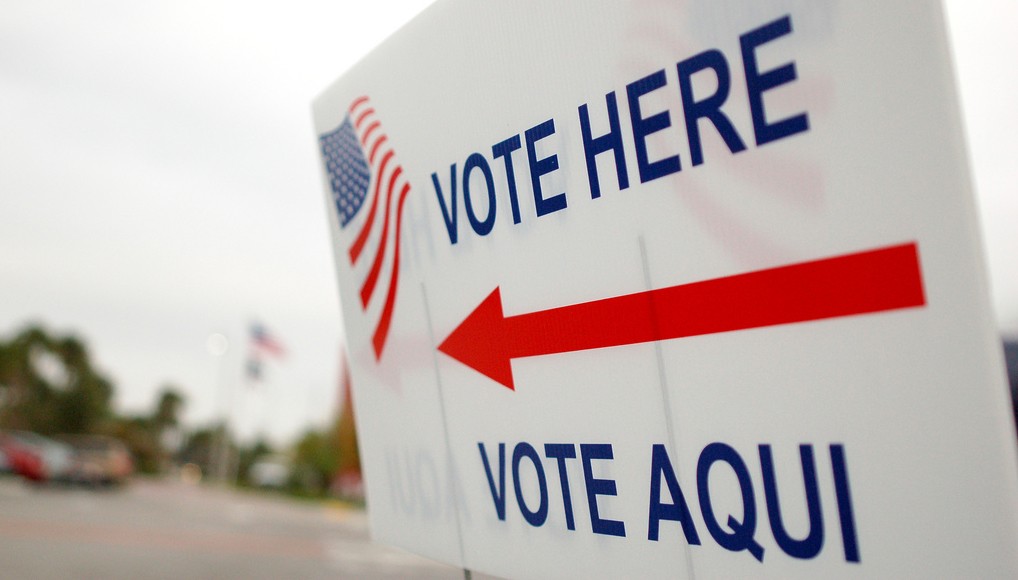With the presidential elections quickly approaching next month, the important question remains: Will Latinos turn out to vote?
Let’s not forget just how important the Latino vote is. As of 2014 — the most recent population estimates available — there were 55.4 million Latinos in the United States, making up 17.4 percent of the population. Between the last presidential election in 2012 and the next one in 2016, the Latino population will increase by 5 million people. Latinos over the age of 18 will comprise 16 percent of the U.S. adult population in 2016. The U.S. Census Bureau estimates the 2016 Latino over-18 population at nearly 39.8 million.
Before going into this year’s elections and front-runners, let’s go back four years. In 2012, polling by Latino Decisions found that Mitt Romney only won 23 percent of Latino voters. In 2016, GOP Republican candidates will need twice the support. Studies in 2012 show 48 percent of the Latino population were eligible to vote. Will the percentage go up this coming February?

The truth is, the Latino community has never been fond of the Republican Party. George W. Bush is just an affirmation of putting trust into the wrong hands. Oddly enough, GOP Republican candidates Sen. Ted Cruz, a Texan, and Sen. Marco Rubio, from Florida, are taking the second and third slot for the Republican Party. Businessman Donald Trump is holding down the first slot for now.
Not surprisingly, the candidate Latinos are least enthusiastic about is Trump. Studies conducted after Trump’s controversial comments about Mexican immigrants demonstrated 70 percent of Latinos have an unfavorable view of the real-estate mogul. Trump asserted that he will “win the Hispanic vote” despite facing widespread criticism last month for his racial slander of the Hispanic community as “drug dealers, rapists, and criminals.” 
It is also worth noting that if former Florida Gov. Jeb Bush, who is backed by many GOP Hispanics, is elected, his wife Columba Bush, a native of Mexico, could become a Latina First Lady. Before we jump to conclusions, Bush has to improve his presence in the polls and the community. Bush has the next highest unfavorable rating after Trump, with about 40 percent. The Latino community just doesn’t seem to be ready for another Bush in office, after the last one almost crippled our economy.
On the Democratic side, Hillary Clinton is the most well-known amongst the Latino community. Recent studies show that 63 percent of Latinos view Clinton as the most favorable. This can also be due to the fact that most Latinos are familiar with Bill Clinton and his presidency.
After discussing with other Latino adults, their view on Democratic and Republican parties has been limited to what the media decides to cover. In truth, a vast amount of the Latino population is unfamiliar with the plans and proposals each candidate has provided in their presidential campaign.
Bernie Sanders, Democratic presidential candidate, has been working relentlessly with Latino organizers to increase his presence in the Latino voting community. Sanders has been using Spanish-language radio ads to further expand his campaign. He has also been meeting privately with immigrant families to better understand their hardships and priorities. Quick question: Has the news aired any of this or is Donald Trump’s exploitation of African American and Latina women still making headlines?
Sanders’ focus on Nevada may stem from his uncertainty of winning the support of the largest percentage of Latino voters in the U.S. His doubt isn’t far-fetched, considering Hillary Clinton won the Nevada Latino vote in 2008. Clinton has had a prominent presence in the state since April.
Clinton and Sanders have been going head to head in the polls. Clinton has accused Sanders of “offering unrealistic policies and overstating his anti-establishment credentials.” On the other hand, Clinton has publicly denounced herself as a woman who changes her views based on her audience, not her beliefs.

2016 is still in for some more surprises. Latinos have grown accustomed to the Democratic Party, but could this year be the game-changer? At one point, everyone believed Trump was running as a joke. Now, he’s the front-runner. Is America really ready for a no-filter president or should we stick with what we know?
It’s no surprise that the Latino community has become the focus of this election. The demographic change has drastically taken over this presidential race. Even if Rubio and Cruz end up losing their GOP nomination, their campaigns have put Latinos in the run for highest political office for the first time since, well, forever.
Every candidate, Democrat or Republican, has been reassuring one thing — change. Will this year be the year of change? Is America ready for a woman in office, maybe the first Hispanic president?
This time around, it seems that the people are no longer going to settle for shortcomings. Catchy slogans will not suffice. Latinos have been promised change and immigration reforms for the past decade and longer. In truth, we just want equal rights and assurance that we won’t lose our family members overnight. One thing is for sure: the Latino vote has become a pivotal factor of this year’s election.
Let’s treat their vote as such; demonstrate that the voters matter.
2016 has become the year in which Latinos have been the most prominent in the media and government. It’s safe to say that we will only be seeing more of them. Will this year’s candidates have enough to win the very important Latino vote?
Only February polls will tell.




























